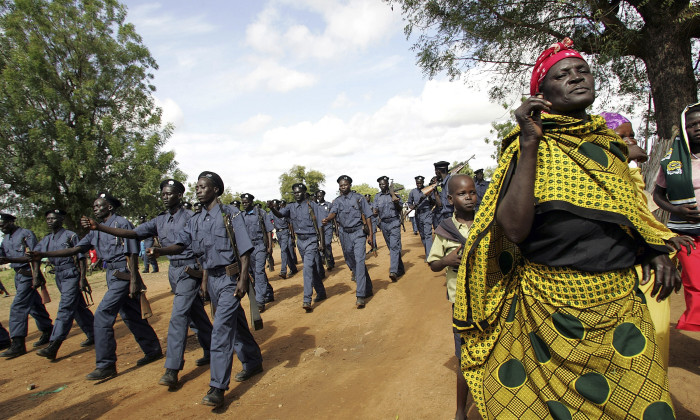Security Sector Reform (SSR)
A security sector that is effective and is based on the rule of law is a precondition for sustainable peace in post-conflict countries. The security sector not only comprises uniformed personnel, but also multiple structures and institutions that are responsible for recruitment, management and oversight. Since past experience has demonstrated that SSR needs to be comprehensive to succeed, efforts in this area are directed at a broad spectrum of actors: military, police, intelligence services, justice, corrections, ministries, parliamentary oversight committees, civil society and also, at times, informal or non-state security providers, such as local militias.
Given this complexity, peace operations set their own priorities in practice. For instance, SSR activities in the UN missions in Somalia (UNSOM), South Sudan (UNMISS) or the Central African Republic (MINUSCA) have focused on developing national security strategies, clarifying the division of labor between various security services and strengthening oversight and democratic control over the security sector. For the EU and the OSCE, too, good governance and respect for human rights are key issues in their support for the security sector, e.g. in the OSCE mission in Serbia and the EU mission in Ukraine. In Iraq, the EU mission (EUAM Iraq) actively promotes the engagement of women in Iraqi intelligence operations.
Peace operations set different priorities in the complex SSR area, such as:
- Developing national security strategies (e.g. MONUSCO, MINUSCA)
- Good governance and respect for human rights (e.g. OSCE presences in Serbia)
- Training professional security services (e.g. EUTM Somalia, EUTM RCA)
 © Tim McKulka
© Tim McKulka
Some missions also focus on improving the relationship between the population and the security services, and on raising public awareness for and trust in a transparent, accountable and competent security sector. To this end, national dialogue processes are undertaken that link the objectives of reform to those of national reconciliation, as in the UN missions in Libya (UNSMIL). Other examples are the OSCE presences in Bosnia and Herzegovina and Serbia. In the Democratic Republic of the Congo, the UN mission (MONUSCO) works with national authorities to foster the meaningful participation of women in the security sector.
Additional SSR tasks include advising on draft laws and training, as well as providing technical and financial support for local security services (see also > >Policing and >Rule of Law). The EU in particular has been engaged in military SSR through training missions in Somalia (EUTM Somalia) and the Central African Republic (EUTM RCA). NATO’s mission in Afghanistan (Resolute Support Mission) followed a similar approach, with the aim to “train, advise and assist” the Afghan National Defense and Security Forces.
As of 17.08.2023